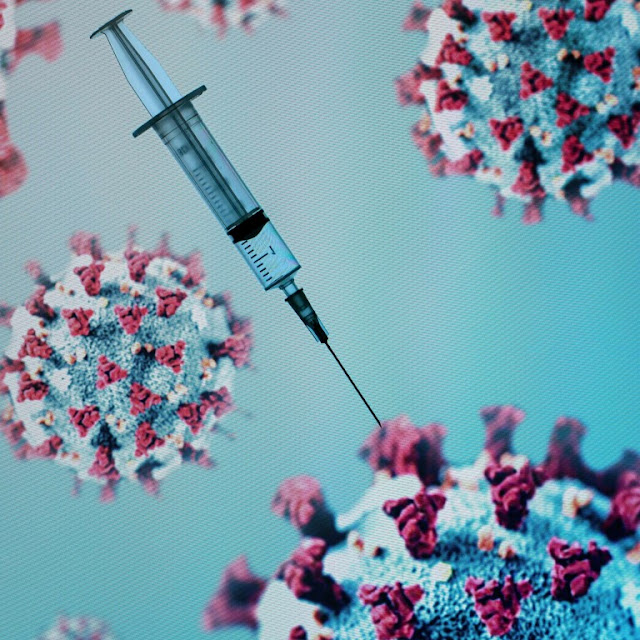China recently claimed that it was far ahead in the global race to find vaccines to stop the Covid-19 pandemic, with a handful of promising homegrown candidates either wrapping up their final-stage clinical trials or being administered in pilot inoculation schemes.
Yet reality shows that China
appears to be lagging behind most Western powers as the vaccine competition
heads into the final leg of regulatory approval and universal injections across
the population. Both the US and UK have commenced vaccinating their citizens
while Australia has brought forward their target from end of March to end of
February 2021. With such programs being kick started across both sides of the
Atlantic, piling pressure on Beijing.
Towards the end of 2020, Chinese
public health watchdogs have rushed through to cut red tape and get official
approval, with some conditions, for the sale of an attenuated vaccine from the
Beijing-based China National Biotec Group, a subsidiary of the state-owned
SinoPharm.
While granting its “conditional
approval” on Wednesday, the National Medical Products Administration said its
evaluation found the vaccine to be 79.34% effective and that its protection far
outweighed any potential risks or side effects.
The watchdog further added that
SinoPharm should diligently follow up with the drug’s wider use for
post-approval assessments of its effectiveness.
The National Health Commission (NHC)
also assured China’s 1.3 billion citizens on Thursday of free and voluntary
shots, albeit without a definitive timeframe.
NHC vice-director Zeng Yixin,
Beijing’s point man on vaccine development and administration, told a State
Council press conference on Friday morning that they would adopt a “phased
approach” to first take care of senior citizens and those with underlying
conditions, before gradually expanding to cover the masses.
Another assuring pledge from Zeng
was that, while noting forming meaningful herd immunity would only require
about 60% of the population – in China’s context, about 780 million people – to
receive jabs, he said top leaders would beseech each and everyone to be
vaccinated, given the “proven safety and efficacy” of these indigenous drugs.
The NHC also added that the other
five homemade vaccines, from three technological paths, are nearing the end of
their respective third-stage trials at home and abroad.
Earlier this month, the United
Arab Emirates and Bahrain approved SinoPharm’s registration applications for
sale in the two Middle Eastern countries, while Brazil and Turkey have also
accredited the high efficacy rate of another attenuated vaccine developed by
Sinovac, a listed pharmaceutical firm also based in Beijing.
While clearing all the regulatory
hurdles for more Chinese vaccines to hit the market and enticing its citizens
with a top-down, no-one-left-behind free immunization drive, the NHC has also
criticized the safety of some Western drugs developed with less verified
techniques.
The messenger ribonucleic acid (mRNA) vaccines researched by Moderna as well as Pfizer and its German partner BioNTech, which will also be marketed in China via a Shanghai-based distributor, have been called into question by the chief of China’s National Center for Disease Control and Prevention.
Gao Fu, director of the Chinese
CDC, reportedly said mRNA vaccines were being injected into healthy people
across the United Kingdom, the United States and other parts of the West for
the first time and such a large-scale roll-out was not without its risks.
Gao went so far as to suggest
that Chinese authorities would not hasten its review and allow the mRNA drug to
be used on such a massive scale as seen across the West.
The mRNA vaccines being
progressively rolled out in the West use a copy of a natural chemical called
messenger RNA to induce an immune response. They transfect molecules of
synthetic RNA into immunity cells to build the viral protein that would
normally be produced by a pathogen or a cancer cell.
These protein molecules stimulate an adaptive immune response to teach the body how to identify and destroy the corresponding pathogen, like the novel coronavirus.
In comparison, attenuated
vaccines from SinoPharm and Sinovac use diluted and detoxified viruses to
trigger an immune response, and since they are developed using existing,
time-tested platforms and techniques, they are believed to be safer.
It is believed that by the end of
the first half of 2021, Chinese people will be able to choose from homemade
attenuated vaccines, likely the ones on offer for free, and the West’s mRNA
alternatives.
Residents in Hong Kong and Singapore can also choose between Chinese and Western drugs in mass inoculation schemes, as both cities have placed orders with Sinovac, Pfizer and other suppliers.
Still, the global scramble for
vaccines means tight supplies and production and distribution bottlenecks, as
more countries count down to mass immunization.
中国最近声称在研发新冠肺炎(Covid-19)的疫苗已遥遥领先其他西方国家。
然而现实证明,随着疫苗研发还需监管部门的批准才能对全民普遍注射,中国在这方面似乎落后于大多数西方国家。美国和英国都已开始为它们的公民接种疫苗,而澳大利亚则提前它们原定的目标。随着大西洋两岸开始实施此类计划,北京目前深受尽快推出疫苗的压力。
国家卫生委员会(NHC)周四向13亿中国公民保证疫苗将会是免费而且人民可自愿决定是否被注射,尽管没有明确的时间表。
中国政府将分阶段注射疫苗,首先照顾老年人和有病的人,然后才逐步扩大覆盖整个社会群众。
中国也把目标放远世界。本月初,阿拉伯联合酋长国和巴林批准了SinoPharm在两个中东国家出售的注册申请,而巴西和土耳其也认可了Sinovac开发的另一种疫苗的高效率。
在推广中国疫苗的同时,NHC也批评了一些未经验证的西方疫苗的安全措施。


No comments:
Post a Comment